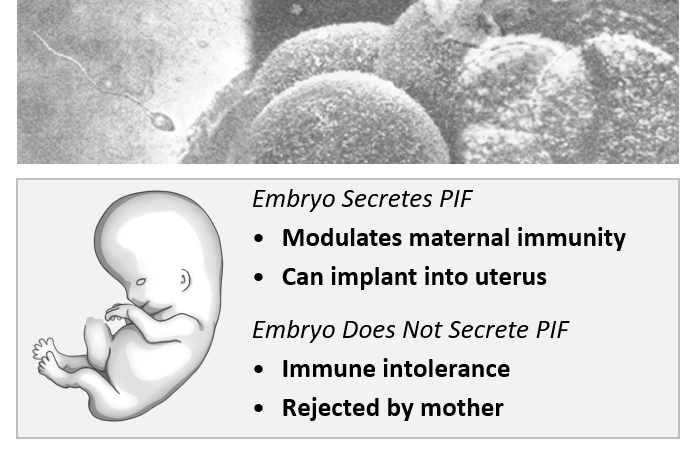PreImplantation Factor (PIF) is a signal peptide from the embryo (‘allograft’) to the mother (‘host’) that is secreted by mammalian embryos from the 4-cell stage to the end of pregnancy.
PIF is pivotal for reproductive success and immune modulation, inducing immune tolerance and embryo acceptance by the mother, thereby mediating implantation of the embryo in the uterus.
Our research shows that embryos not secreting PIF do not implant and are rejected by the mother as a function of immune intolerance. The discovery of PIF represents a paradigm shift in understanding mammalian pregnancy; its premise is that a prerequisite of successful pregnancy resides not (only) with the mother as previously thought, but with the embryo/ fetus and its ability to secrete PIF.
The discovery of PIF helps to explain why, at the inception of and during pregnancy, the mother’s immune system does not reject the embryo. This event, at its very core, is a perfect transplant in a well-adapted immune environment.
PIF enables maternal immunity to simultaneously tolerate the embryo and continue to protect both mother and embryo against disease.
PIF and its synthetic analogue (sPIF) modulate the immune system, regulate inflammation, and induce embryonal differentiation through a series of complex pathways
